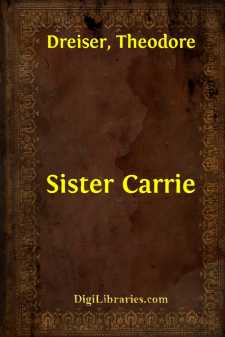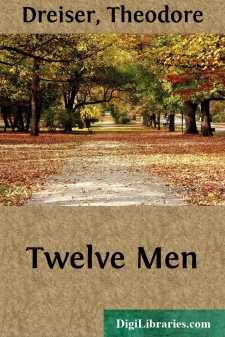Categories
- Antiques & Collectibles 13
- Architecture 36
- Art 48
- Bibles 22
- Biography & Autobiography 813
- Body, Mind & Spirit 142
- Business & Economics 28
- Children's Books 17
- Children's Fiction 14
- Computers 4
- Cooking 94
- Crafts & Hobbies 4
- Drama 346
- Education 46
- Family & Relationships 57
- Fiction 11829
- Games 19
- Gardening 17
- Health & Fitness 34
- History 1377
- House & Home 1
- Humor 147
- Juvenile Fiction 1873
- Juvenile Nonfiction 202
- Language Arts & Disciplines 88
- Law 16
- Literary Collections 686
- Literary Criticism 179
- Mathematics 13
- Medical 41
- Music 40
- Nature 179
- Non-Classifiable 1768
- Performing Arts 7
- Periodicals 1453
- Philosophy 64
- Photography 2
- Poetry 896
- Political Science 203
- Psychology 42
- Reference 154
- Religion 513
- Science 126
- Self-Help 84
- Social Science 81
- Sports & Recreation 34
- Study Aids 3
- Technology & Engineering 59
- Transportation 23
- Travel 463
- True Crime 29
The Financier, a novel
by: Theodore Dreiser
Description:
Excerpt
Chapter I
The Philadelphia into which Frank Algernon Cowperwood was born was a city of two hundred and fifty thousand and more. It was set with handsome parks, notable buildings, and crowded with historic memories. Many of the things that we and he knew later were not then in existence—the telegraph, telephone, express company, ocean steamer, city delivery of mails. There were no postage-stamps or registered letters. The street car had not arrived. In its place were hosts of omnibuses, and for longer travel the slowly developing railroad system still largely connected by canals.
Cowperwood's father was a bank clerk at the time of Frank's birth, but ten years later, when the boy was already beginning to turn a very sensible, vigorous eye on the world, Mr. Henry Worthington Cowperwood, because of the death of the bank's president and the consequent moving ahead of the other officers, fell heir to the place vacated by the promoted teller, at the, to him, munificent salary of thirty-five hundred dollars a year. At once he decided, as he told his wife joyously, to remove his family from 21 Buttonwood Street to 124 New Market Street, a much better neighborhood, where there was a nice brick house of three stories in height as opposed to their present two-storied domicile. There was the probability that some day they would come into something even better, but for the present this was sufficient. He was exceedingly grateful.
Henry Worthington Cowperwood was a man who believed only what he saw and was content to be what he was—a banker, or a prospective one. He was at this time a significant figure—tall, lean, inquisitorial, clerkly—with nice, smooth, closely-cropped side whiskers coming to almost the lower lobes of his ears. His upper lip was smooth and curiously long, and he had a long, straight nose and a chin that tended to be pointed. His eyebrows were bushy, emphasizing vague, grayish-green eyes, and his hair was short and smooth and nicely parted. He wore a frock-coat always—it was quite the thing in financial circles in those days—and a high hat. And he kept his hands and nails immaculately clean. His manner might have been called severe, though really it was more cultivated than austere.
Being ambitious to get ahead socially and financially, he was very careful of whom or with whom he talked. He was as much afraid of expressing a rabid or unpopular political or social opinion as he was of being seen with an evil character, though he had really no opinion of great political significance to express. He was neither anti- nor pro-slavery, though the air was stormy with abolition sentiment and its opposition. He believed sincerely that vast fortunes were to be made out of railroads if one only had the capital and that curious thing, a magnetic personality—the ability to win the confidence of others. He was sure that Andrew Jackson was all wrong in his opposition to Nicholas Biddle and the United States Bank, one of the great issues of the day; and he was worried, as he might well be, by the perfect storm of wildcat money which was floating about and which was constantly coming to his bank—discounted, of course, and handed out again to anxious borrowers at a profit....







